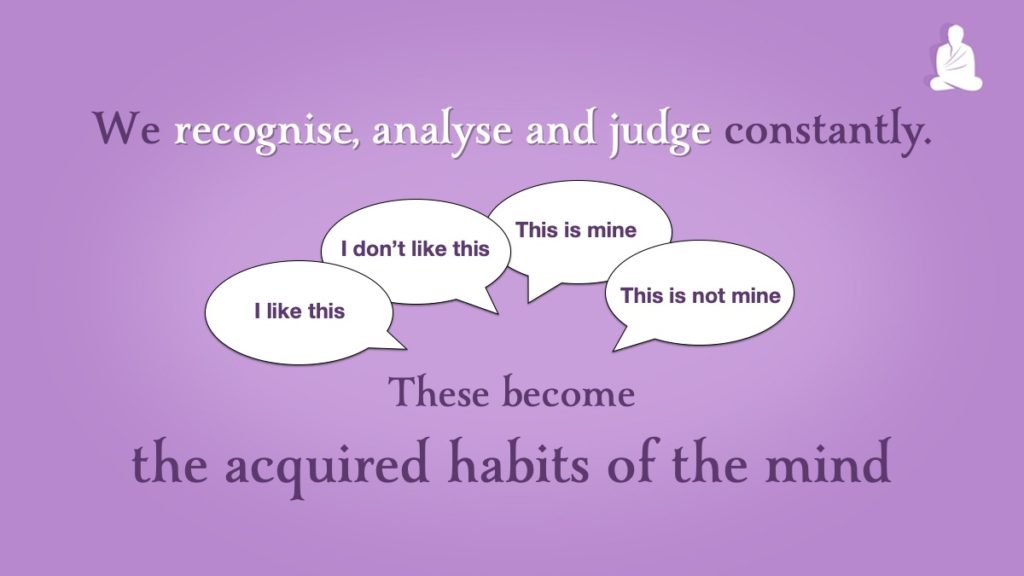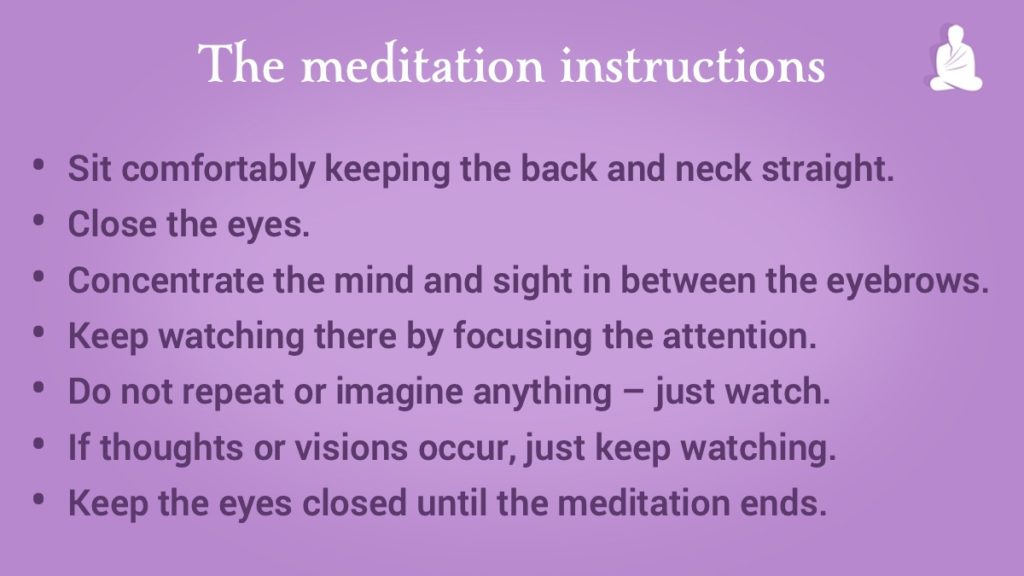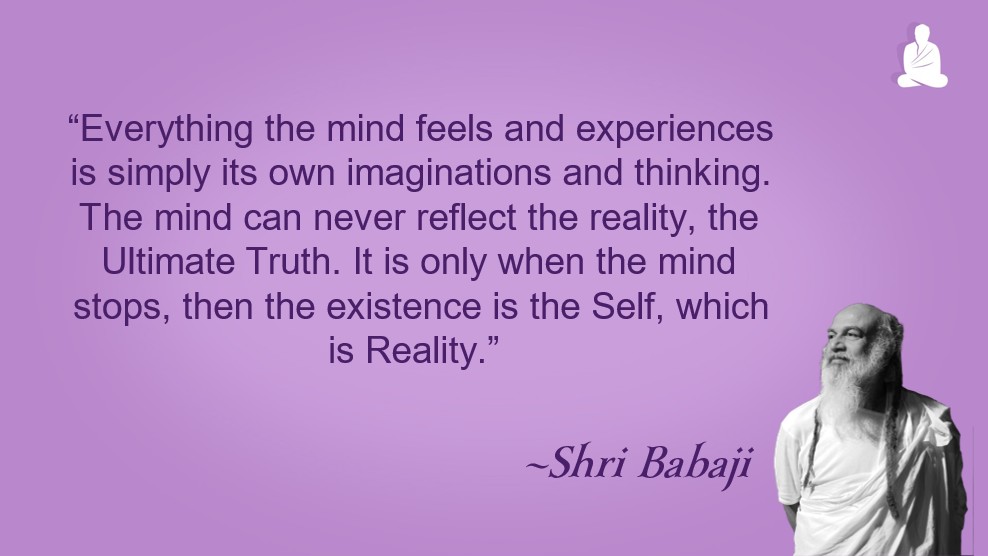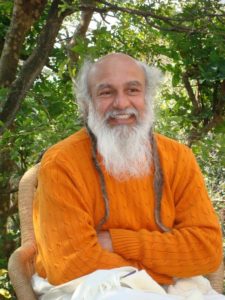Jangama Meditation Course (6 Parts)
Here is a recap of what was covered in this week’s course.
Session: HOW MEDITATION WORKS
Why meditate?
Why do we need to spend our precious time on this practice? How does it work and how do you do it?
If we observe our own mind, we find that it is seldom in the present moment. It keeps running, thought after thought, often brooding about the past or worrying about the future and getting into stress, fear and unhappiness.

It is easy to bring the physical body to rest on a sofa but we cannot do the same with the mind. It is an intangible thing that cannot be tied down or placed in a box.
Just like when we drive a car, we should not only be able to accelerate the vehicle, but also be able to bring it to a halt, otherwise it can be hazardous for others as well as ourselves. In the same way that we need to have control over a vehicle, we need control over our own mind. We should be able to think when we want to think and rest the mind when we want to stop thinking.
This we achieve through the practice of meditation.
The three thought processes
When we apply our mind on something, 3 thought processes occur in close succession. First we recognize something (“this is a cup”) then we analyse it (“do I like it? Is it mine?”), then we make a judgment about it (“I don’t like it”, “it is mine”). These judgments or firm conclusions about the world around us sit in the subconscious layers of the mind as imprints and influence our behaviour. The imprints accumulate to form the acquired habits of the mind.

Sometimes we might make a knee jerk reaction due to this habitual behaviour which may not be how we wish to behave, or make the wrong kinds of judgments, for instance thinking a friend as a foe or visa versa. Whereas we need to make judgments in our daily lives, the important thing is that we should be able to think in any way that we want but we should not be habitual to think in a particular way.
We should be able to think in any way that we want but we should not be habitual to think in a particular way.
A purification process
In meditation what we are doing is purifying the mind of these imprints. When we sit to meditate immediately these imprints start to evaporate from the mind and we are forced to watch them as thoughts or visual effects.
Just as when we wash dirty clothes, the dirt has to come out. We cannot then get into a panic and just leave the dirt there, we need to let it wash away. This is how we must approach the thoughts and imaginations that arise in the meditation, rather than getting involved in them and reabsorbing them into the mind, we allow them to come and then to go.
How do we meditate?
JUST WATCH
The secret of meditation is in the instruction ‘Just watch’. As thoughts and imaginations arise in the mind we will want to analyse and make judgments about them and get lost in a chain of thoughts. Instead of this we ‘just watch’ without thinking about what it is we are watching. There is a thin line of difference between thinking and watching. If we are 100% watching then we cannot be thinking. If we are thinking then we cannot be 100% watching. Using the eyeballs, we concentrate the mind and sight in between the eyebrows and keeping watching there. As we are able to do this the mind starts to recede and quieten down, the thoughts decrease and peace descends.

With continued practice of this technique, we start to gain control of the mind and a truly stress-free life can be achieved.
Tips to help establish your meditation practice
- Start with a length of meditation that you think you can manage every day e.g. 15, 20 minutes etc. Then gradually you can extend the duration.
- Try practising at the same time and place every day, this will help reinforce the good habit.
- Make sure you are well rested. Avoid practising within 1 or 2 hours after mealtimes.
- Practising first thing in the morning can be beneficial for beginners as the mind is fresh and the surroundings quieter. It will set you up nicely for the day ahead.
- Don’t be in a rush, patience will reap rich dividends.

Next course session on Tuesday: A Healthy Mind
Enjoyed our course?
Write a Google review to help us reach more people,
or write a testimonial:
Join our Group Meditation
After attending at least half the 6 part course, you can also join the weekly Group Meditations.
Group Meditations are on these days:
Wednesday evening 6.30-7.30pm BST
Sunday morning 10.00-11.00am BST
Click on a day for further details and to book.
In-person Sessions
Click here to learn more about our next in-person session in Central London
Meditation and Q&A with Babaji
A special weekly online meditation and q+a every Saturday with Meditation Master Babaji.

Depending on availability Babaji will join us online most weeks.
These are precious opportunities to meditate under the guidance of a Realized Master, to continue our practice and benefit from the special teaching and guidance that Babaji can provide.
